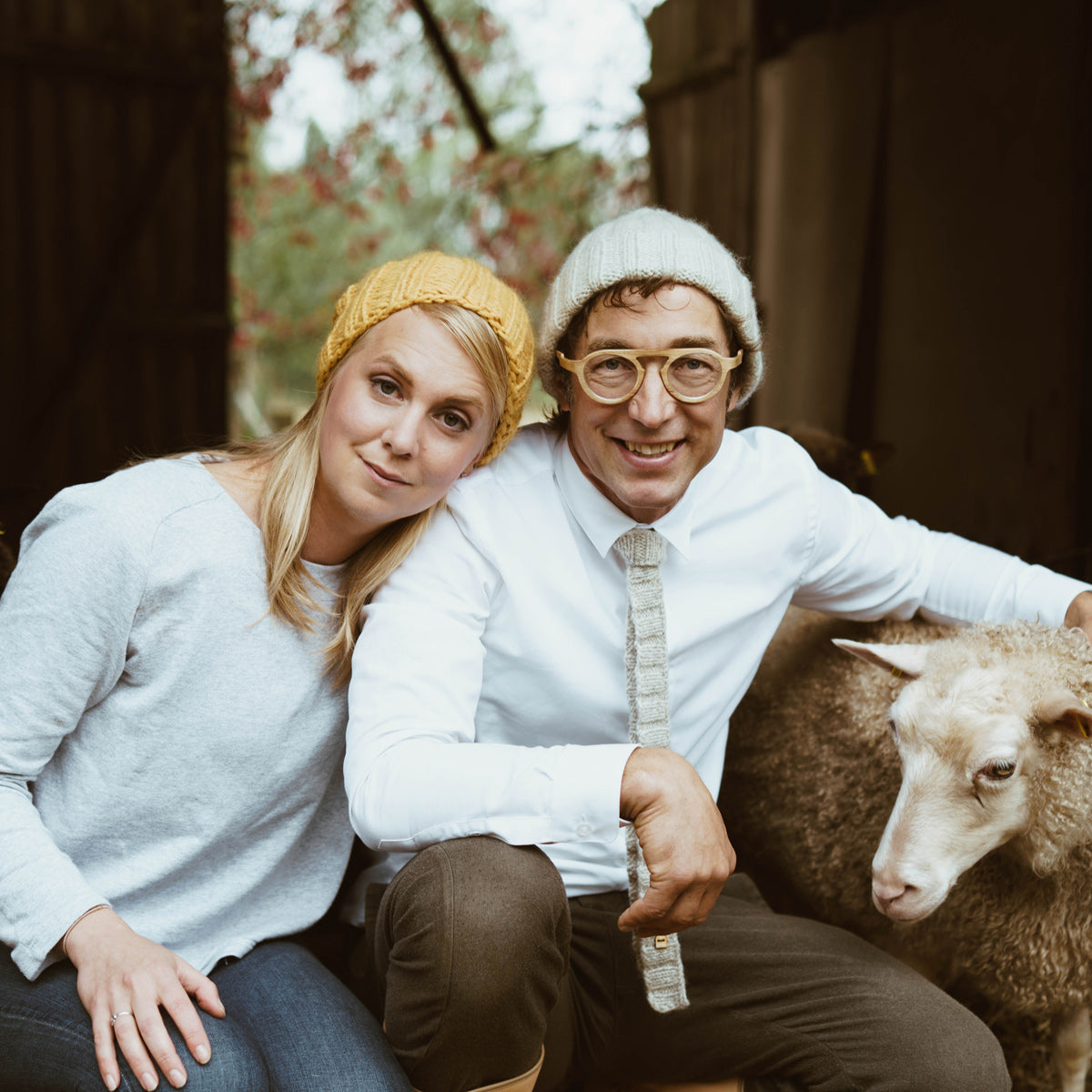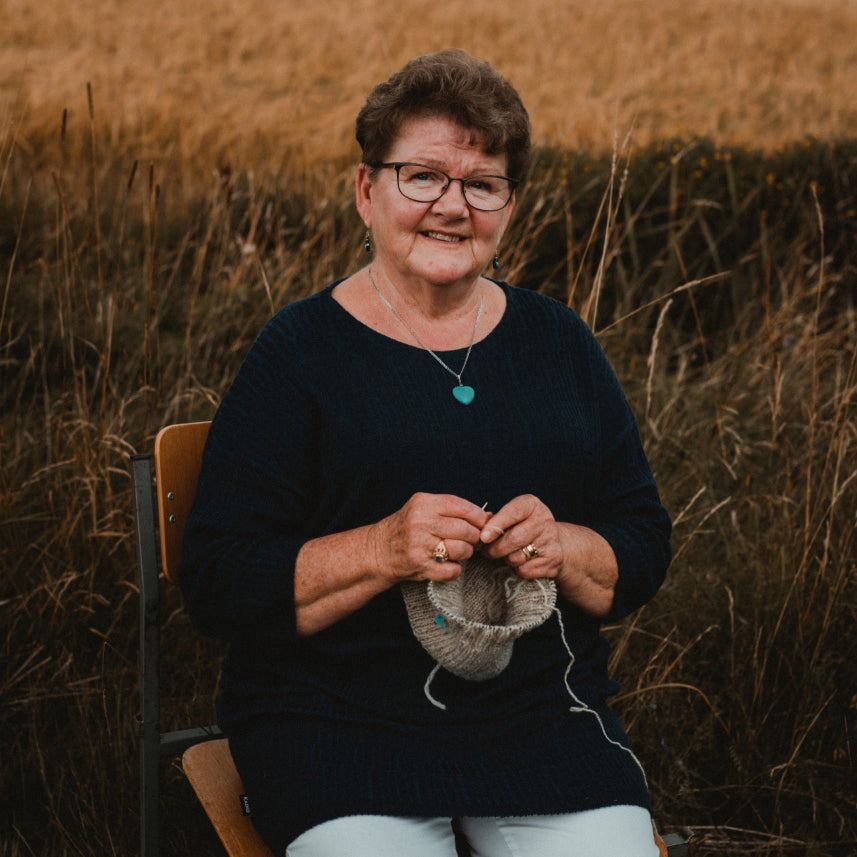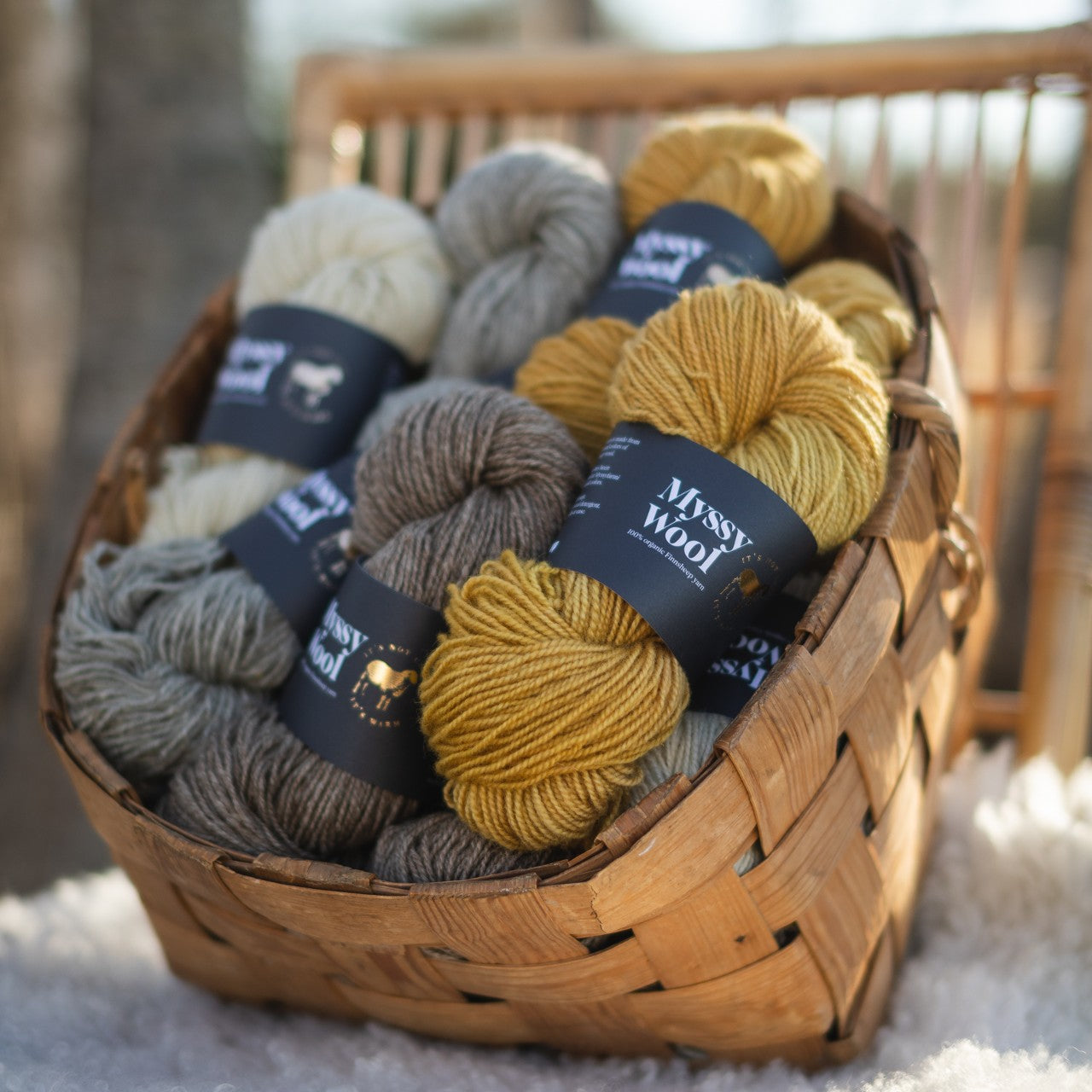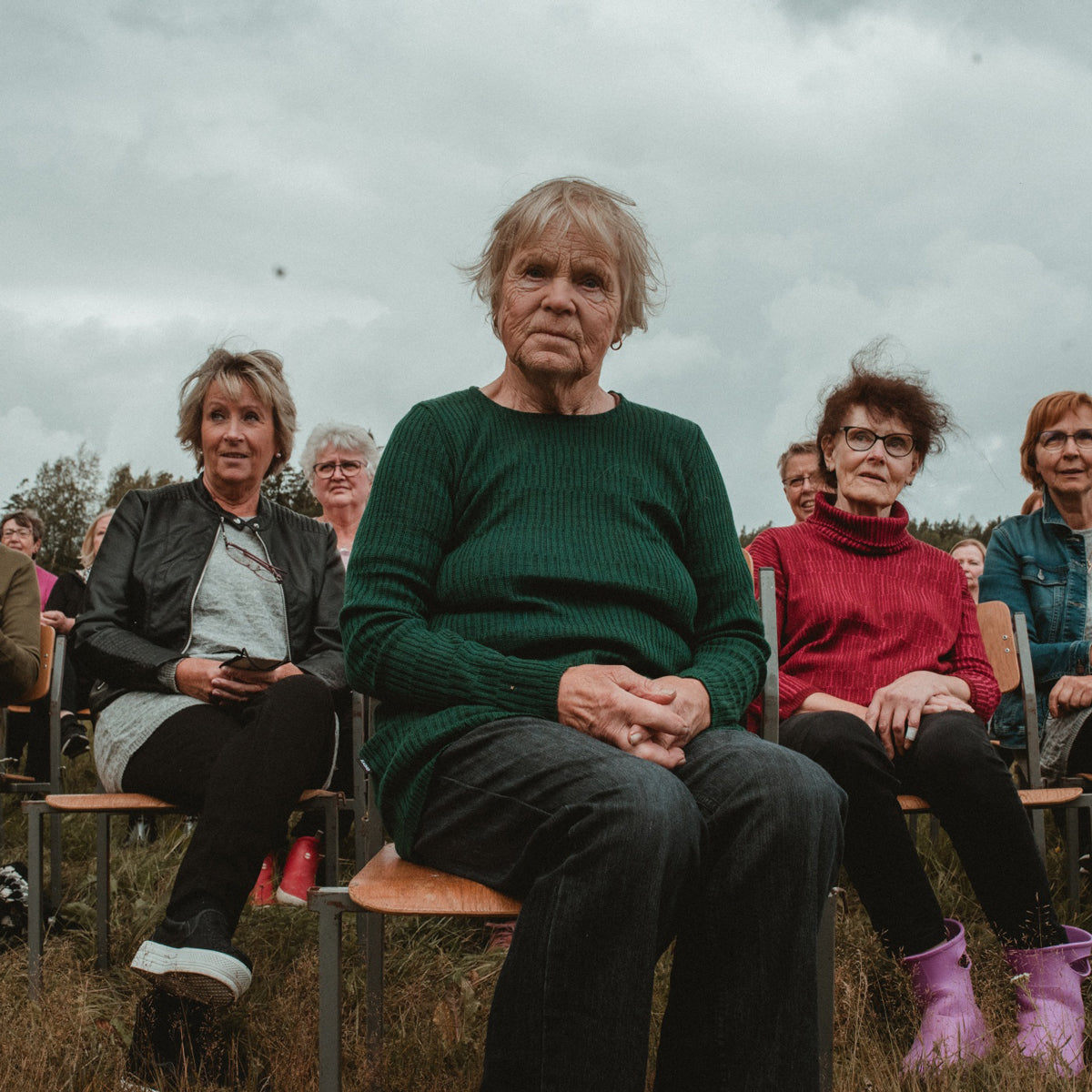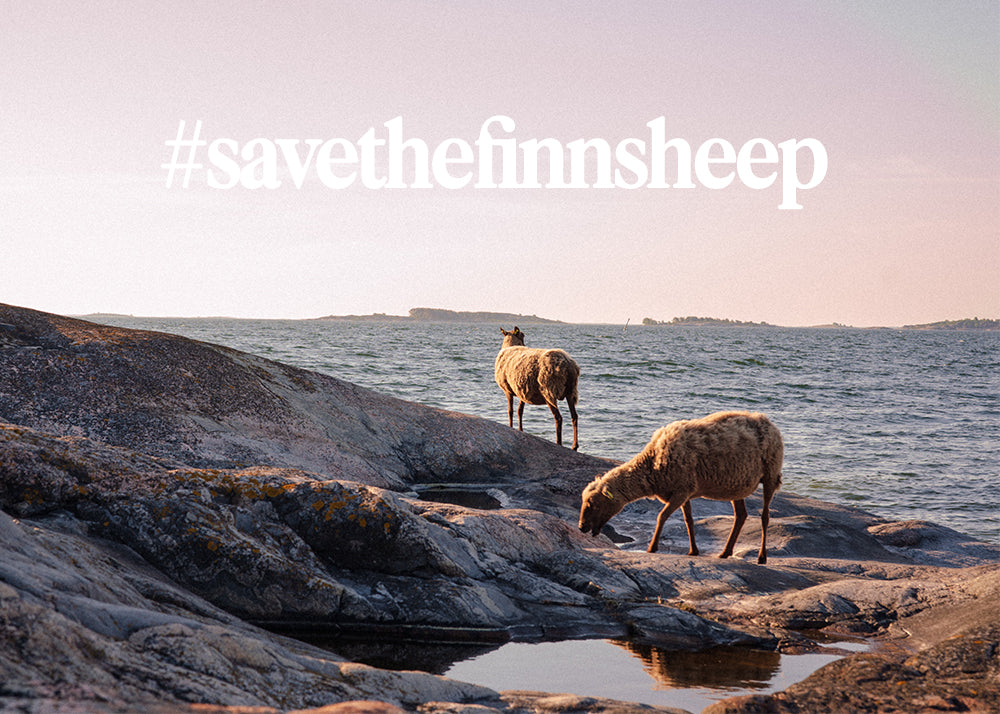The sheep farming in Finland has reached a critical point, and a state of emergency has been declared in the sector. As the only company focusing on manufacturing Finnsheep wool products and as an opinion leader in the wool industry, it is our duty to raise awareness. The Finnish Sheep Association declared a state of emergency at the Annual Sheep Seminar event in early November, and issued a press release November 8th that after a brief mention, quickly faded from the media.
What does the state of emergency mean?
In Finland, lamb production has decreased by a staggering 30 percent in just five years, and the equity ration of the sheep farms has fallen from 60 percent to about 45 percent. Sheep farming and production have reached a critical point.
Due to this sharp decline in production, the entire sheep business from sheep farms to slaughterhouses, leather tanneries, spinning mills, and us manufacturers is under threat. The survival of our original landrace and national treasure, Finnsheep, is also at risk. This unique breed of sheep has a distinct genetic heritage that sets it apart from any other breed. We must also remember all the endangered species, which can only be saved through grazing.
What’s the problem?
1. Administrative costs have skyrocketed
Contrary to the Finnish government’s program, increasing administrative costs and tightening regulations threaten primary production and businesses: animal registration fees, food establishment fees, meat inspection, and surveillance charges are further burdening companies that are already struggling financially. The number of inspections should be better aligned with the scale and risks of the activities. The administrative costs per kilogram of produced meat are unreasonably high.Contrary to the Finnish government’s program, increasing administrative costs and tightening regulations threaten primary production and businesses: animal registration fees, food establishment fees, meat inspection, and surveillance charges are further burdening companies that are already struggling financially. The number of inspections should be better aligned with the scale and risks of the activities. The administrative costs per kilogram of produced meat are unreasonably high.
2. Key subsidies have been drastically cut
All key subsidies for the sheep farming sector have been slashed, while production costs have risen. The most important of these is the support for traditional biotopes, the conditions have become stricter and funding has been cut with reductions being 18% in 2023. For many sheep farms, the care of traditional biotopes is their main production focus, and the reduction in the area covered leads directly to a matching reduction in livestock numbers. Grazing is the only way to maintain many extremely endangered species.
3. Market situation reduces consumption
The sheep producer prices have fortunately risen slightly over the past five years, but they still don’t keep pace with inflation or cover the cost. Furthermore, due to consumers' decreased purchasing power, it is difficult to get a price from the consumer market that would cover the costs of the supply chain.
4. Predator damage forces farms to close
The so-called “predator pressure” created by the wolf on sheep farms is one of the key root causes of the state of emergency. It weakens profitability, threatens the gene pool of our original landrace, and reduces the attractiveness of sheep farming.The mental strain caused by predator damage increasingly leads to farmers quitting production. There are simply no cost-effective or labor-light ways to protect the livestock.
What has the crisis already caused?
The 30% decline in livestock numbers has already had immediate consequences. Finland’s last tannery focused on sheepskin is closing down, and the last company tanning lambskin has gone bankrupt. Spinning mills and manufacturers like us are facing challenges. Small slaughterhouses are also under threat as surveillance fees increase and livestock numbers decline.
The CAP (Common Agricultural Policy) and biodiversity strategy emphasize environmental actions where the sheep play a crucial role. However, the interpretation of agreements concerning the management of one of Finland's most endangered natural habitats, traditional biotopes, has become much stricter. As a result, the area of natural pastures is decreasing, even though Finland has committed to increasing grazing areas to fight the biodiversity loss.
Furthermore, the preservation of unique sheep races and the protection of their gene pool is threatened by the drastic decline in sheep numbers. All three of our native sheep breeds - the Finnsheep, Kainuu grey and Åland sheep - are at risk. All this despite the fact that maintaining indigenous animal breeds as part of agricultural production is a national obligation based on international agreements.
Sheep are an excellent supply security animal producing meat, wool, and pelts without the need for supplementary feed. However, the current direction of the sheep sector is the opposite to our current needs for food security.
What shall be done?
With the declaration of the state of emergency, the sheep farming now urgently requires immediate action from politicians and government officials to save Finnish sheep farming!
The articles of association of Myssyfarmi Ltd states that our company’s mission is the manufacturing, conceptualizing, selling, and marketing of Finnish agricultural products. It is our duty and responsibility to defend the sheep business and raise awareness about it among our thousands of Myssy Friends.
If the cause of Finnsheep is important to you, you can best help us by sharing this message on your own channels. Save the Finnsheep!
On behalf of Myssyfarmi,
Anna Rauhansuu, CEO
Source: Press release by the Finnish Sheep Association, November 8, 2024

